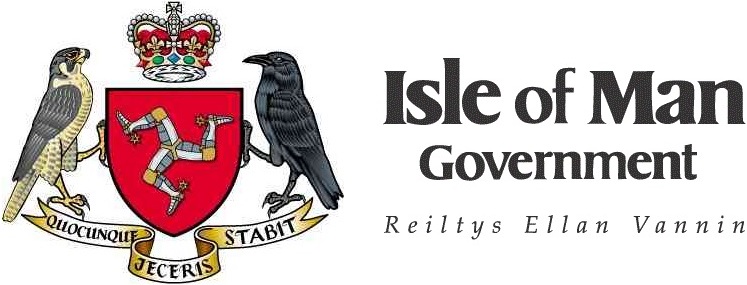Gambling legislation reforms
Gambling AML/CFT Act 2018 reforms
General commentary on the descriptions of changes in this consultation
The commentary below focuses solely on the substantive changes currently proposed in the FSA Bill and the GSC Bill. In the interest of keeping this document concise, it does not generally address consequential or ancillary amendments made to support the implementation of those substantive changes.
Please note that the descriptions provided are of the proposals as they currently stand. These may be subject to revision following the outcome of the public consultation or during the legislative process in the branches of Tynwald.
Read the changes to the Gambling AML/CFT Act 2018
Your browser does not support inline PDF viewing. Please download the PDF.
Section 3 (New definitions)
The definitions within s.3 of the Act have been amended as follows:
- Omitted ‘AML/CFT Codes’ (term never used in the Act)
- Change to the definition of ‘AML/CFT legislation’ so that it points solely to the Gambling (AML/CFT) Code 2019, instead of general references to Part 3 of the Proceeds of Crime Act 2008, and some sections of the Anti-Terrorism and Crime Act 2003 and the Terrorism and Other Crime (Financial Restrictions) Act 2014. The Gambling (AML/CFT) Code 2019 represents the implementation of the GSC’s controls in respect of ensuring the requirements of these provisions are adhered to within the Island’s licensed gambling sectors
- New definition of ‘beneficial owner’ (defined in line with s.4(1) the BO Act 2017 (opens in a new tab))
- New definition of ‘controller’
- New definition of ‘equipment’ (for use within the new inspection and investigation Schedule)
- New definition of ‘exchange’ (and associated definitions of ‘designated exchange’ and ‘recognised exchange’)
- Omitted ‘Financial Intelligence Unit’ or ‘FIU’ (term never used in the Act)
- New definition of ‘former Operator’
- New definition of ‘key person’
- Amended definition of ‘Operator’
- Omitted ‘prescribe’ (term no longer relevant)
- Amended definition of ‘senior manager’
- New definition of ‘subsidiary’
The regulation making power at (2) which previously allowed the Treasury to amend the definition of ‘designated gambling Operator’ and ‘Operator’, has been amended such that the definitions which may not be changed via these Regulations are: ‘beneficial owner’, ‘controller’, ‘Operator’ and ‘senior manager’.
Definitions of ‘Operator’ and ‘former Operator’
The definition of ‘Operator’ still refers to the holder of any GSC licence, permit or registration issued under any of the cited gambling Acts. The definition has been amended to make clear that a former holder of one of these documents will also be considered an ‘Operator’ in respect of the inspection and investigation powers, as well as some of the sanctioning powers under the Act. A ‘former Operator’ for the purpose of these sections will only include that Operator during the time in which they held the relevant licence, permit or registration.
These amendments are for clarification purposes, as it has always been implicit that these powers could be exercised in respect of former Operators, in respect of conduct committed during a time in which they were a current Operator.
Definition of ‘key person’
A new definition of ‘key person’ has been included, in order to reference Money Laundering Reporting Officers (MLROs) and AML/CFT Compliance officers. Positions which are required by Operators under the Gambling Code.
This definition has been inserted in order to make clear that these roles are within scope of some of the provisions of this Act, on an equal basis (in most cases) to ‘controllers’ and ‘senior managers’ of Operators.
The relevant sections that ‘key persons’ have been brought within scope of are:
- Section 18(5)(c) (Directions)
- Section 22 (Civil penalties)
- Section 23 (Warning notices)
- Section 25 (Direction not to appoint an individual)
Section 5 (Duty to provide AML/CFT regulation and oversight)
A minor amendment has been made to clarify that the Gambling Supervision Commission’s (GSC) responsibilities for regulatory oversight of anti-money laundering and countering the financing of terrorism (AML/CFT) matters are specifically those set out in gambling-related codes issued under section 157 of the Proceeds of Crime Act 2008 or section 68 of the Terrorism and Other Crime (Financial Restrictions) Act 2014. The relevant code currently in force is the Gambling (Anti-Money Laundering and Countering the Financing of Terrorism) Code 2019 (SD 2019/0219) (‘the gambling code’).
The gambling code sets out the GSC’s expectations for how Operators should comply with AML/CFT obligations in the context of gambling activities. It is this code that the GSC monitors and enforces. Previously, the definition of ‘AML/CFT legislation’ referred broadly to general AML/CFT provisions, some of which extended beyond the intended scope of the GSC’s regulatory inspections under this Act. The amendment refines the scope of Section 5 to align more precisely with the GSC’s actual regulatory remit.
Additionally, a new subsection has been introduced to confirm that the powers under this Act may be exercised alongside those granted to the GSC under other relevant gambling legislation. This reflects the fact that the Gambling (AML/CFT) Act 2018 operates as a supplementary framework, overlaying existing obligations on licence holders and reinforcing the GSC’s powers in relation to specific gambling activities.
Section 6 (Returns)
A change has been made to the requirement to provide AML/CFT returns as follows, in order to increase clarity:
- (2) The Commission must specify:
(a) AML/CFT information; and- (a) The AML/CFT information to be included in the AML/CFT return; and
Section 14 (Information sharing)
Section 14 of the Act has been amended in order to provide a regulation making power for the GSC to specify other entities with whom it may disclose non-aggregated data with. These regulations will still be subject to the provisions of Schedule 2 to the Gambling Supervision Act 2010.
Section 18 (Directions)
Section 18 has been consequently amended to reflect the issue of directions under paragraph 3 (requests for information) of the new inspection and investigation Schedule.
A reference to section 26 has been removed from subsection (1) as that section does not entail a power to issue directions.
Section 19 (Public statements)
Amendments made such that where the GSC is considering issuing a public statement about a former licence holder, that it must serve notice on that former licence holder prior to doing so, where it is reasonably practicable for the GSC to do so.
Section 22 (Civil penalties)
The section has been amended such that specific individuals within a company regulated by the GSC (or was previously regulated by the GSC) may personally be liable for a civil penalty for AML/CFT-related failures. This change will bring the GSC’s powers in alignment with FATF Recommendation 35 (sanctions).
The specific individuals are controllers, senior managers and key persons of the company.
The civil penalty may be imposed in relation to any failures to comply with the Act itself or any responsibility imposed under the Gambling (Anti-Money Laundering and Countering the Financing of Terrorism) Code 2019 (opens in a new tab).
A civil penalty may however only be imposed where the GSC is satisfied that the failure was caused in part due to the consent or connivance of the specific individual, or was caused due to negligence on their part. Where relevant, the civil penalty may be imposed in lieu of any criminal proceedings that the individual may be subject to as a result of that failure.
A decision to impose a civil penalty on an individual in accordance with this amended power will be subject to a right of appeal.
Section 23 (Warning notices)
A consequential amendment has been made to section 23(1) in order to maintain that a warning notice may still be issued as a potential step to be taken before the issuance of a section 26 prohibition of a not fit and proper person. This is made in consequence of the amendment to section 18(1) (Directions).
A further change has been made in order to reflect that the power to issue a warning notice issued under this section is exercised by the GSC, as opposed to an authorised person.
Finally an amendment has been made to subsection (4) in order to make clear that none of the other potential sanctions under Part 3 are affected by the issuance of a warning notice, rather than just sections 26 and 27.

